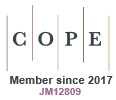Whale are our kin, our memory and our responsibility
Jack Harwood Pascoe A * , Teagan Goolmeer
A * , Teagan Goolmeer  A B , Anthony McKnight C and Vicki Couzens D
A B , Anthony McKnight C and Vicki Couzens D
A
B
C
D
Abstract
There is a global move to advocate for the incorporation of Indigenous Knowledges into conservation and land management programs. In Australia this is being reflected in some programs and also regularly in strategy documents. However, we argue that this rarely reflects self-determination for Traditional Custodians. In this article we use two Culturally Significant Entities (CSEs), the humpback and southern right whales, to demonstrate how the regulatory framework that is in place to support species conservation does not adequately allow for Traditional Custodians to extend culturally appropriate levels of care for Country or preserve the knowledge held or associated with a species. Our aim is that the Australian Government and people will work with us to find a way to support the care of CSEs.
We, the authors, are Indigenous Australians. We have familial connections to whale Lore Holders and/or hold traditional whale Lore/Law as part of our cultural obligations. It is from this position that we advocate for greater care of the whales with which we have Ancestral kinship and reciprocal responsibility.
Keywords: culturally significant entities, ethnozoology, humpback whale, indigenous knowledge, songline, southern-right whale, traditional ecological knowledge.
References
Gee G, Dudgeon P, Schultz C, Hart A, Kelly K (2014) Aboriginal and Torres Strait Islander social and emotional wellbeing. In ‘Working together: Aboriginal and Torres Strait Islander mental health and wellbeing principles and practice’. 2nd edn. (Ed. P Dudgeon, H Milroy, R Walker) pp. 55–68. (Department of the Prime Minister and Cabinet: Canberra)
Goolmeer T, van Leeuwen S (2023) Indigenous knowledge is saving our iconic species. Trends in Ecology & Evolution 38, 591-594.
| Crossref | Google Scholar | PubMed |
Goolmeer T, Skroblin A, Wintle BA (2022a) Getting our act together to improve Indigenous leadership and recognition in biodiversity management. Ecological Management & Restoration 23, 33-42.
| Crossref | Google Scholar |
Goolmeer T, Skroblin A, Grant C, van Leeuwen S, Archer R, Gore-Birch C, Wintle BA (2022b) Recognizing culturally significant species and Indigenous-led management is key to meeting international biodiversity obligations. Conservation Letters 15, e12899.
| Crossref | Google Scholar |
Hill CJ, Schuster R, Bennett JR (2019) Indigenous involvement in the Canadian species at risk recovery process. Environmental Science & Policy 94, 220-226.
| Crossref | Google Scholar |
International Whaling Commission (2015) Annex H: Report of the sub-committee on other southern hemisphere whale stocks. Journal of Cetacean Research and Management 16, Supplimentary 196-221.
| Google Scholar |
Johnson C, Reisinger R, Palacios D, Friedlaender A, Zerbini A, Willson A, Lancaster M, Battle J, Graham A, Cosandey-Godin A, Jacob T, Felix F, Grilly E, Shahid U, Houtman N, Alberini A, Montecinos Y, Najera E, Kelez S (2022) Protecting blue corridors, challenges and solutions for migratory whales navigating International and National seas. WWF, Oregon State University, University of California: WWF International, Santa Cruz: Switzerland.
Legge S, Rumpff L, Garnett ST, Woinarski JCZ (2023) Loss of terrestrial biodiversity in Australia: magnitude, causation, and response. Science 381, 622-631.
| Crossref | Google Scholar | PubMed |
Suchet-Pearson S, Wright S, Lloyd K, Burarrwanga L, on behalf of the Bawaka Country (2013) Caring as Country: towards an ontology of co-becoming in natural resource management. Asia Pacific Viewpoint 54, 185-197.
| Crossref | Google Scholar |
Wintle BA, Cadenhead NCR, Morgain RA, Legge SM, Bekessy SA, Cantele M, Possingham HP, Watson JEM, Maron M, Keith DA, Garnett ST, Woinarski JCZ, Lindenmayer DB (2019) Spending to save: what will it cost to halt Australia’s extinction crisis? Conservation Letters 12, e12682.
| Crossref | Google Scholar |
Woinarski JCZ, Braby MF, Burbidge AA, Coates D, Garnett ST, Fensham RJ, Legge SM, McKenzie NL, Silcock JL, Murphy BP (2019) Reading the black book: the number, timing, distribution and causes of listed extinctions in Australia. Biological Conservation 239, 108261.
| Crossref | Google Scholar |


